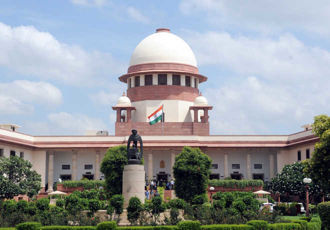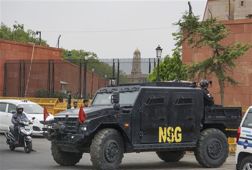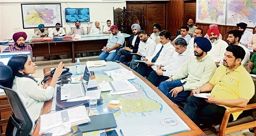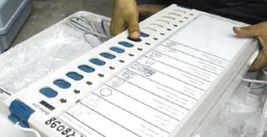
A new column that lays threadbare the concerns, challenges associated with mental illness
Prof BS Chavan
Contrary to common belief, mental illness is very common. In 2001, the World Health Organisation (WHO), during its 54th World Assembly, stated that at any given point of time, about 450 million people suffer from some kind of mental, behavioural and substance abuse problem. This translates into over 6% of world population having some kind of mental health problem. Every fourth person who avails health services suffers from some kind of mental health problem, but a majority of these people are either not diagnosed or are not adequately treated. The problem has worsened after 16 years of the report.
The National Mental Health Survey (NMHS)—2016, where the National Institute of Mental Health and Neurosciences (NIMHANS), Bengaluru, was the coordinating institute and the Department of Psychiatry, GMCH, Chandigarh, was one of the investigating agencies for the state of Punjab, reported that 10.6% of the Indian population above 18 years of age has a diagnosable mental disorder. This means that over 100 million people in India are in need of treatment. However, only a minority (10-15%) is receiving treatment.
Mental illness and substance use disorders cause a huge burden on the person, family and society. In order to estimate the burden of various diseases, two parameters i.e. years lost due to premature death (YLL) and the years lost due to disability (YLD) are commonly used to see the global burden of disease (GBD). In 2010, GBD was studied for 291 diseases and 67 risk factors across the world and the findings showed that mental illness and substance use disorders alone were the fifth leading cause of YLD. In addition to premature death and disability due to mental illness, there is an increased risk of violence, acquiring co-morbid medical illness including diabetes, hypertension, and malnutrition, higher rates of smoking, homelessness and marital disruption.
Despite signatory to the statement, 'There is no development without health, no health without mental health’ during the World Assembly in 2001, India has still not improved its mental health facilities. There is an acute shortage of mental health professionals in the country; the developed countries have more than 12 psychiatrists per 1 lakh population, whereas India just has 0.3. Punjab has 0.46 psychiatrists per 1 lakh population (NMHS, 2016).
In addition to limited number of MD psychiatry seats, a large number of qualified and experienced psychiatrists are leaving the country for better job prospects. Similarly, most of the developed countries spend approximately 5% of their health budget on mental health. India spends just 0.16% and most of this is on long-stay patients in mental hospitals with negligible amount for prevention and rehabilitation.
In India, approximately two-thirds of the population still live in villages and health facilities for this huge population are provided by the medical officers working in primary health centres and district hospitals. In the absence of psychiatrists even at the District Hospital, mentally ill patients and their families look at these doctors for treatment. However, due to inadequate training in psychiatry during MBBS, these doctors fail to diagnose and treat a majority of the mentally ill patients seen by them.
In most countries, psychiatry is an independent examination subject in the MBBS, whereas in India, it is a small part of Medicine and most students do not attend even a single class in psychiatry. Research has shown that 20-70% persons who commit suicide visit the primary care physician a month prior to committing suicide, and the records showed that a majority were not properly diagnosed and treated.
Out of total mental illnesses, approximately 90% are common mental disorders like anxiety, depression, epilepsy, alcohol and drug abuse, obsessive compulsive and stress-related disorders and these disorders can be easily treated by the physicians provided they are adequately exposed and trained in psychiatry during the MBBS course. Most of these cases do not require admission. But due to stigma, a large number of patients do not seek treatment. The remaining disorders (called severe mental disorders that include schizophrenia and mood disorders) run a chronic course and thus need lifelong treatment.
Due to the severe nature of symptoms (including aggression and violence, self-neglect, odd and bizarre behaviour, disruption in family and work life and high suicide risk), cost and side-effects of long-term medication, dependence on the family even for simple daily activities, neglect and discrimination by society; these disorders take a heavy toll on the patients, family and community.
No caregiver support
With negligible long-term care facilities in the public sector and lack of affordability of facilities in the private sector, the kin of patients are forced to face a never-ending battle throughout their life. There are hardly any caregiver support groups to help these families acquire the skills and knowledge to handle the symptoms and guide the patient in day-to-day activities. The worst phase during this journey is when parents become old and fragile and feel incapable to deal with the situation.
Since the patient often lacks the capacity to handle his personal, financial and property matters, the family looks around for support, an agency they can trust and which is accountable to the law of the land. Sadly, such a system is non-existent in India. The Mental Health Care Act—2017 gives some hope to the families, but the past experience shows that India is excellent in framing wonderful laws, but the implementation remains a huge challenge.
CHILLING FACTS
- Suicide rate due to mental illness and stress is increasing in India (7.9 per lakh population in 1987 and 10.3 per lakh population in 2007) and out of 8,00,000 persons who commit suicide in the world, 17% are Indians
- Depression is one of the most widespread illnesses, often co-existing with other serious illnesses. According to WHO, depression was ranked as the third leading cause of the global burden of disease in 2004 and will attain the first place by 2030
- The developed countries have more than 12 psychiatrists per 1 lakh population, India has just 0.3 per 1 lakh population
What is required, and can be done
- Psychiatry should be one of the most important subjects during MBBS training
- Mental health budget should be increased and separated from health budget with a push on investing in rehabilitation facilities
- State governments should set up a Trust for care of persons with mental illness and their families with one-time corpus (on the pattern of National Trust 1999, for intellectual disability, autism, cerebral palsy and multiple disability) to look after the urgent medical, legal, housing and social needs of mentally ill patients
- Government should support self-help groups and sheltered workshops, where patients can work during the day and the products are purchased by government agencies
- Policymakers should be sensitised to the limitations and rights of patients suffering from mental illness and don’t laugh at them, but work for them
The writer is a psychiatrist who has been closely working with persons with mental illness (PMIs) and their families for over 30 years Email: [email protected]


























